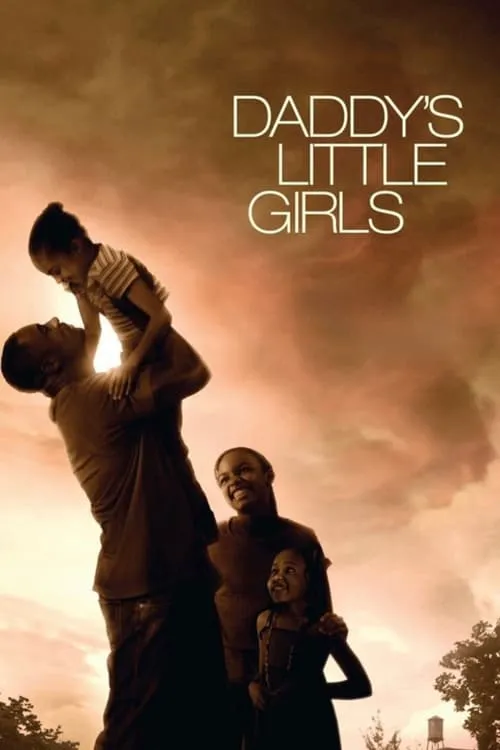Daddy's Little Girls

Plot
Daddy's Little Girls is a 2007 American romantic drama film directed by Tyler Perry and starring Tyler Perry, Gabrielle Union, and Idris Elba. The movie takes place in Atlanta, Georgia, and revolves around Monty, a devoted father struggling to raise his three young daughters, Lisa, Imani, and Amara, on his own after he separates from his wife. Monty, played by Tyler Perry, is a down-to-earth, hardworking man who works tirelessly as a mechanic to secure a better life for his children. Despite having to navigate the difficulties of single parenthood, he remains a loving and nurturing father to his daughters. However, his life becomes even more complicated when his ex-wife, Brenda, a gold-digging woman with no regard for the well-being of her children, petitions the court to gain custody of the girls. Brenda, who has moved on to a new, more affluent lifestyle, tries to manipulate the court system to take the girls away from their father, citing his inability to provide a stable environment. Meanwhile, Monty finds himself fighting a losing battle to maintain custody of his daughters. As he grapples with the possibility of losing the most precious people in his life, Monty becomes increasingly desperate and isolated. Enter Julia, played by Gabrielle Union, a beautiful and intelligent attorney from an Ivy League university who agrees to take Monty's case pro bono. At first, Monty is skeptical of Julia's intentions, viewing her as a privileged, upper-class attorney who does not understand the struggles of the working class. Julia, on the other hand, is initially hesitant to get involved in Monty's case, believing that her high-powered law firm might be better served by taking on more lucrative cases. As the story unfolds, Monty and Julia begin to develop a close bond over their shared desire to protect the well-being of the children. Julia's skills as an attorney prove invaluable in helping Monty navigate the complexities of the court system, and Monty's genuine affection for his daughters serves as a catalyst for Julia's own feelings of motherly love and compassion. Despite their vastly different backgrounds, the two develop a deep and tender connection, one that transcends their initial differences. As Monty and Julia grow closer, they face numerous challenges that test their resolve. Monty's friends and family, who are suspicious of Julia's intentions, create tension in the relationship. Additionally, Julia's boss, who is determined to prove that the court's decision to grant custody to Brenda was correct, puts pressure on Julia to drop the case. Meanwhile, Brenda, determined to gain custody of her daughters, stops at nothing to discredit Monty and Julia. She uses her wealth and influence to manipulate the court system, even going so far as to fabricate evidence that suggests Monty is an unfit father. Julia and Monty must find a way to counter Brenda's tactics and prove that Monty is indeed a fit parent. Throughout the movie, the theme of fatherhood is explored in depth. Monty's unwavering dedication to his daughters serves as a testament to the importance of paternal involvement in a child's life. At the same time, Julia's journey serves as a reminder that everyone deserves a second chance to make a positive impact in the lives of children. The movie's climax features a dramatic and emotional court battle between Monty and Brenda, with Julia advocating on Monty's behalf. In the end, the court grants custody of the girls to Monty, securing a bright future for the family. The movie concludes on a hopeful note, with Monty and Julia's relationship blossoming as a result of their shared victory. The film's final scene shows Monty and Julia walking together, hand in hand, surrounded by the daughters they both love and care for. The ending is a heartwarming testament to the power of love and determination in the face of adversity. Ultimately, Daddy's Little Girls is a movie about the unconditional love that exists among family members. It highlights the challenges faced by single parents, particularly fathers, who are often viewed as secondary caregivers. Through Monty's journey, the film reminds audiences of the importance of providing a stable and nurturing environment for children to grow and thrive.
Reviews
Amaya
Really good! A 64-year-old woman faces the same difficult choices she did at 16, and it's just as challenging this time around. The best part is that the mother isn't portrayed as a gentle, selfless, tirelessly devoted "great mother." She's volatile, selfish, and weak, yearning for unrestrained freedom, yet she's still a great woman. This film tells the story of how a woman confronts the life's challenges that her innate womb presents to her. Conversely, Johnny constantly saying, "I'm old now, I want the warmth of a home," is truly laughable. The female lead is dancing and boxing in her sixties, while this old man is still looking for a woman...
Journey
A melodramatic tale spanning three generations of mothers and daughters, it could be considered an LGBT Pro-Life film in a way. Sylvia Chang is likely to win another Golden Horse Award for Best Actress.
Recommendations




